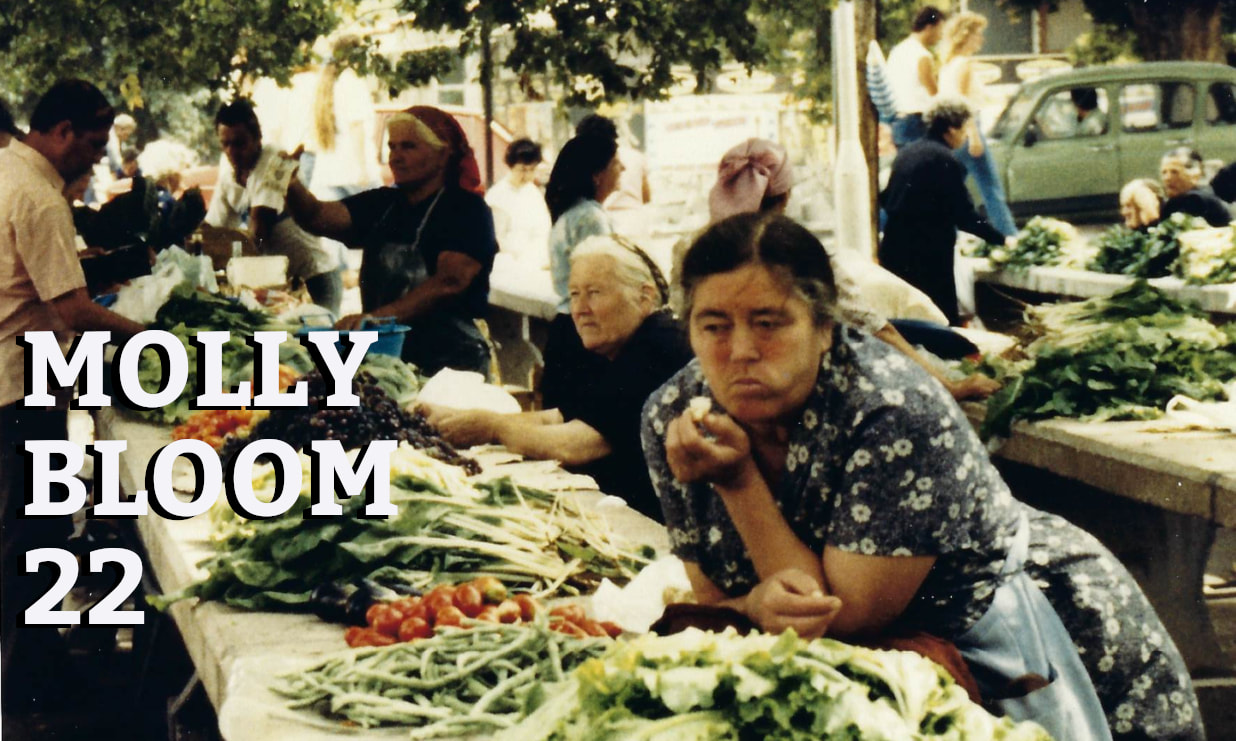You know that particular feeling of envy-tinged admiration when you read something you wish you had written yourself - and almost imagine you could have written it, given more time, more application, and maybe more skill? I've seldom felt that more strongly than after I received a full manuscript of Jeremy Hilton's next book, the marvellous Fulmar's Wing. In truth, I am somewhat in awe of a work that seems to take a number of my own interests and concerns and make of them such a coherent and inspiring whole. Though it was written before the outbreak of the health crisis currently gripping the world, it still feels both timeless and vitally topical. Using the recurrent image of the globe-travelling fulmar to knit together a world-ranging narrative of human and creature travails, it's a true tour de force, which I urge you to seek out when it's published next year. In the meantime, Molly Bloom is hugely privileged to present the opening ten poems in the sequence, other parts of which have previously appeared in print in Tears In The Fence and online in The Fortnightly Review.
I'm also delighted to present here a varied range of other thought-provoking and affective work by Molly Bloom newcomers Camilla Nelson, Jasmina Bolfek-Radovani - who you can hear reading one of her poems - and Will Hall, along with regulars Simon Smith, Peter Robinson, Janet Sutherland and Mark Goodwin, and others perhaps heading for that status, Melissa Buckheit and Linda Black, Kate Ashton, Julie Sampson and Jessica Mookherjee.
While the times we are living in right now may be full of strangeness and uncertainty, there must be one part in each of us which asks: "Why make poetry now? How can poetry really matter?" And another which replies: "It's precisely at times like this that poetry matters most." Poetry, as much as any other form, provides context, a balance between change and continuity, a sense both of the now and the beyond the now, a way of exploring and expanding one's own thinking as much as the world beyond. For all these reasons and more the show must go on. For some others that may mean the show must go online. Which is precisely where Molly Bloom has been for the past seven years and where she intends to go on going on.
Be well. Be safe. And be inspired by all that you find here.
Aidan Semmens, editor, May 2020
I'm also delighted to present here a varied range of other thought-provoking and affective work by Molly Bloom newcomers Camilla Nelson, Jasmina Bolfek-Radovani - who you can hear reading one of her poems - and Will Hall, along with regulars Simon Smith, Peter Robinson, Janet Sutherland and Mark Goodwin, and others perhaps heading for that status, Melissa Buckheit and Linda Black, Kate Ashton, Julie Sampson and Jessica Mookherjee.
While the times we are living in right now may be full of strangeness and uncertainty, there must be one part in each of us which asks: "Why make poetry now? How can poetry really matter?" And another which replies: "It's precisely at times like this that poetry matters most." Poetry, as much as any other form, provides context, a balance between change and continuity, a sense both of the now and the beyond the now, a way of exploring and expanding one's own thinking as much as the world beyond. For all these reasons and more the show must go on. For some others that may mean the show must go online. Which is precisely where Molly Bloom has been for the past seven years and where she intends to go on going on.
Be well. Be safe. And be inspired by all that you find here.
Aidan Semmens, editor, May 2020
|
When ideas fail, words come in very handy
– Goethe |
‘Don’t ask me about your poetry,’ said the professor. ‘No good ever came
of discussing poetry.’ – Eric Linklater, Poet’s Pub |

